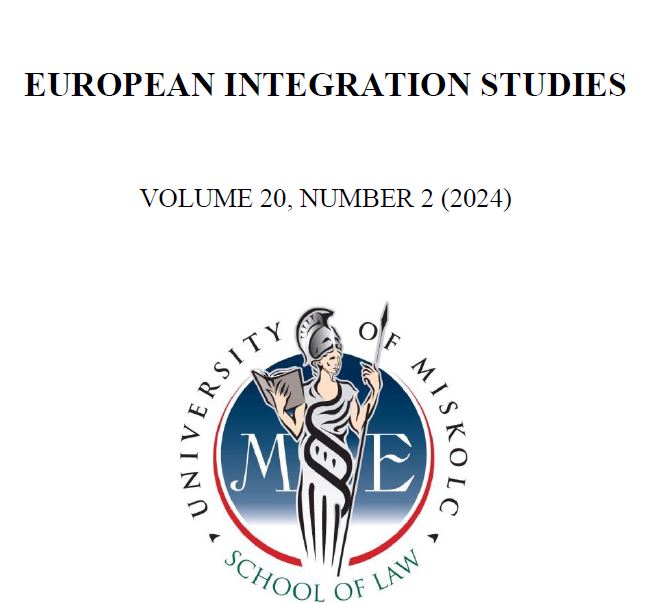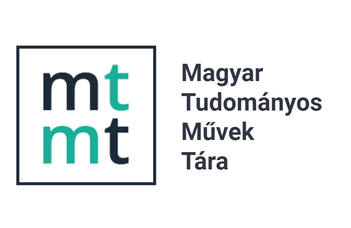Challenges in the Use of Artificial Intelligence-enabled Systems in Modern Armed Forces
DOI:
https://doi.org/10.46941/2024.2.15Keywords:
artificial intelligence, risks, military, ethics, legal, strategic, operational, technology.Abstract
The application of Artificial Intelligence (AI) in the armed forces brings about a number of new possibilities and also new risks. In this paper, we have identified and analysed a wide range of risks associated with uncontrolled and unstoppable development of general AI, as well as several ethical and legal, operational and strategic risks. We have shown how and why these risks are dangerous and some even pose a threat to human security, values, norms, democracy, human rights, etc. These risks need to be carefully examined in order to improve the military use of AI and regulation in this area. The wide range of risks identified and their extremely diverse nature show that regulating the military use of AI will be difficult and complex, requiring all disciplines of law, and that regulatory rules need to be applied at national, regional and global level. The rapid development of military AI suggests that some risks are likely to be considered and regulated before any malicious military use of AI occurs, while unfortunately some others will only be regulated after the first instances of its malicious and illegal use by some armed forces.
References
Bremmer, I., Suleyman, M. (2023) ‘The AI Power Paradox: Can States learn to Govern Artificial Intelligence – Before It’s Too Late?’, Foreign Affairs, 2023/September/October.
Canca, C. (2023) ‘AI Ethics and Governance in Defence Innovation: Implementing AI Ethics Framework’ in Raska, M., Bitzinger, R. A. (eds.) The AI Wave in Defence Innovation: Assessing Military Artificial Intelligence Strategies, Capabilities and Trajectories. New York: Routledge, pp. 1–11; https://doi.org/10.4324/9781003218326-4.
Forrest, E. M., Boudreaux, B., Lohn, A.J., Ashby, M., Curriden, C., Klima, K., Grossman, D. (2020) Military Application of Artificial Intelligence: Ethical Concerns in an Uncertain World. Santa Monica: RAND Research Report.
Gatopoulos, A. (2021) ‘Project Force: AI and the Military – a Friend or Foe?’, Aljazeera [Online]. Available at: https://www.aljazeera.com/features/2021/3/28/friend-or-foe-artificial-intelligence-and-the-military (Accessed: 09 August 2024).
Horowitz, M. C. (2018) ‘The Promise and Peril of Military Applications of Artificial Intelligence’, Bulletin of the Atomic Scientists [Online]. Available at: https://thebulletin.org/2018/04/the-promise-and-peril-of-military-applications-of-artificial-intelligence/ (Accessed: 06 August 2024).
Juliano, D. (2016) AI Security. Fort Myers: Undine.
Kruger, A. (2024) ‘Alternative ni, prilagoditi se bomo morali svetu z AI’, Interview, Executive Director of DFKI, Delo, 22 February, p. 13.
Levy, A., Uri, M. (1986) Organisational Transformation: Approaches, Strategies, Theories. New York: Praeger. https://doi.org/10.5040/9798400693960.
Luberisse, J. (2023a) The Geopolitics of Artificial Intelligence: Strategic Implications of AI for Global Security. Wroclaw: Fortis Novum Mundum.
Luberise, J. (2023b) Algorithmic Warfare: The Rise of Autonomous Weapons. Wroclaw: Fortis Novum Mundum.
Mantello, P., Manh-Tung H., Minh-Hoang N., Quan-Hoang V. (2023) Bosses without a heart: Socio-demographic and cross-cultural determinants of attitude toward Emotional AI in the workplace. AI & Society, 38, pp. 97–119; https://doi.org/10.1007/s00146-021-01290-1.
Mashur, N. (2019) ‘AI in Military Enabling Applications’, CSS Analyses in Security policy, 2019/251, pp. 1–4. [Online]. Available at: https://www.research-collection.ethz.ch/bitstream/handle/20.500.11850/367663/CSSAnalyse251-EN.pdf?sequence=2 (Accessed: 09 August 2024).
Nurkin, T. (2023) ‘AI and Technological Convergence: Catalysts for Abounding National Security Risks in the Post-COVID World’, in Bitzinger, A. R., Raska, M. (eds.) The AI Wave in Defence Innovation: Assessing Military Artificial Intelligence Strategies, Capabilities and Trajectories. New York: Routledge, pp. 37-58; https://doi.org/10.4324/9781003218326-3.
Park, J., Sang Eun W. (2022) ‘Who Likes Artificial Intelligence? Personality Predictors of Attitudes toward Artificial Intelligence’. The Journal of Psychology 156, pp. 68–94; https://doi.org/10.1080/00223980.2021.2012109.
Prezelj, I., Harangozo, D. (2018) Confidence and Security-Building Measures in Europe at a Crossroads. Baden-Baden: NOMOS. https://doi.org/10.5771/9783845288970.
Prezelj, I., Ristevska, T. T. (2022) ‘Intelligence Scandals: A Comparative Analytical Model and Lessons Learned from the Test Case of North Macedonia’, Intelligence and National Security, 38(1), pp. 143-170; https://doi.org/10.1080/02684527.2022.2065616.
Raska, M., Bitzinger, R. A. (2023) ‘Introduction: The AI Wave in Defence Innovation’, in Raska, M., Bitzinger, R. A. (eds.) The AI Wave in Defence Innovation: Assessing Military Artificial Intelligence Strategies, Capabilities and Trajectories. New York: Routledge, pp. 1–11; https://doi.org/10.4324/9781003218326-1.
Rickli, J.-M., Mantellassi, F. (2023) ‘Artificial Intelligence in Warfare’, in Raska, M., Bitzinger, R. A. (eds.) The AI Wave in Defence Innovation: Assessing Military Artificial Intelligence Strategies, Capabilities and Trajectories. New York: Routledge, pp. 12-36; https://doi.org/10.4324/9781003218326-2.
Schepman, A., Rodway, P. (2023) ‘The General Attitudes towards Artificial Intelligence Scale (GAAIS): Confirmatory Validation and Associations with Personality, Corporate Distrust, and General Trust’. International Journal of Human–Computer Interaction 39, pp. 2724–2741; https://doi.org/10.1080/10447318.2022.2085400.
Schuller, M. (2023) Human and Machine Learning, Paper presented at a conference NATO in the Nordics, August 30-31st 2023, Stockholm.
Soare, S. (2023) ‘European Military AI: Why Regional Approaches are Lagging Behind’, in Raska, M., Bitzinger, R. A. (eds.) The AI Wave in Defence Innovation: Assessing Military Artificial Intelligence Strategies, Capabilities and Trajectories. New York: Routledge. https://doi.org/10.4324/9781003218326-5.
Thiele, R. (2021a) ‘Nineteen Technologies in Focus’, in Thiele, R. (ed.) Hybrid Warfare: Future and Technologies. Wiesbaden: Springer VS, pp. 71-124; https://doi.org/10.1007/978-3-658-35109-0_5.
Thiele, R. (2021b) ‘Annex 2 – Artificial Intelligence’, in Thiele, R. (ed.) Hybrid Warfare: Future and Technologies. Wiesbaden: Springer VS, pp. 187-196; https://doi.org/10.1007/978-3-658-35109-0.
Thiele, R. (2021c) ‘Technology as a Driver’, in Thiele, R. (ed.) Hybrid Warfare: Future and Technologies. Wiesbaden: Springer VS, pp. 59-70; https://doi.org/10.1007/978-3-658-35109-0_4.
Artificial Intelligence (2023) Encyclopaedia Britannica [Online]. Available at: https://www.britannica.com/technology/artificial-intelligence (Accessed: 09 August 2024).
Artificial Intelligence Act, Briefing, EU Legislation in Progress, European Parliamentary Research Service, June, 2023.
Artificial Intelligence Act: Council and Parliament Strike a Deal on the First Rules for AI in the World, Council of the EU, Press Release 986/23, 9.12, 2023.
Flash Wars: Autonomous Weapons, AI and the Future of Armed Conflict, documentary movie, Director Daniel Andrew Wunderer, Blue + Green Communications, 2023.
Geneva Conventions of 12 August 1949 (1949) ICRC [Online]. Available at: https://www.icrc.org/sites/default/files/external/doc/en/assets/files/publications/icrc-002-0173.pdf#:~:text=the%20ICRC%20is%20at%20the%20origin%20of%20the%20Geneva%20Conventions (Accessed: 07 August 2024).
Protocols Additional to the Geneva Conventions of 12 August 1949 (1977) [Online]. Available at: https://www.icrc.org/sites/default/files/external/doc/en/assets/files/other/icrc_002_0321.pdf#:~:text=Geneva%20Conventions%20of%2012%20August%201949,%20and%20relating%20to%20the (Accessed: 09 August 2024).
Final Report (2021) Washington, D.C.: National Security Commission on Artificial Intelligence. [Online]. Available at: https://www.nscai.gov/wp-content/uploads/2021/03/Full-Report-Digital-1.pdf (Accessed: 09 August 2024).
Seizing the opportunities of safe, secure and trustworthy artificial intelligence systems for sustainable development, UN General Assembly Resolution, A/78/l.49, 11 March 2024.
Summary of the NATO Artificial Intelligence Strategy (2021) Meeting of Defence Ministers, 22 October, Brussels.
Terminator Genesis, Director: Alan Taylor, IMDbPro, 2015.





